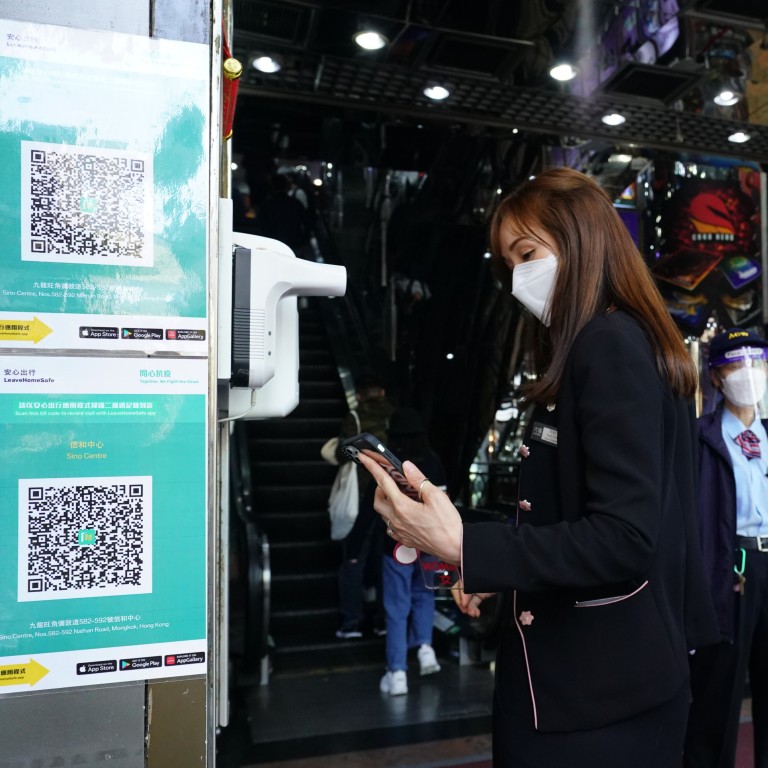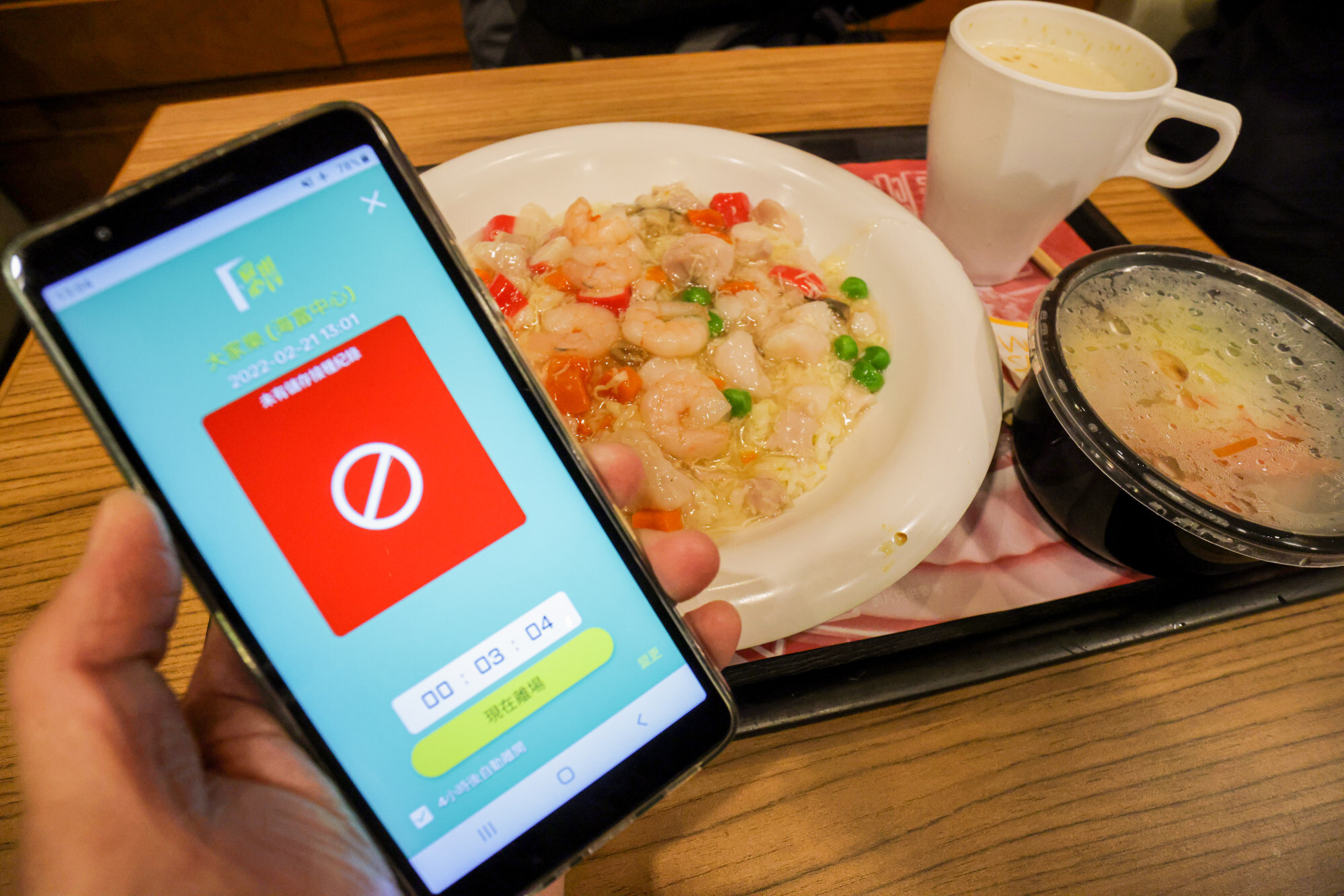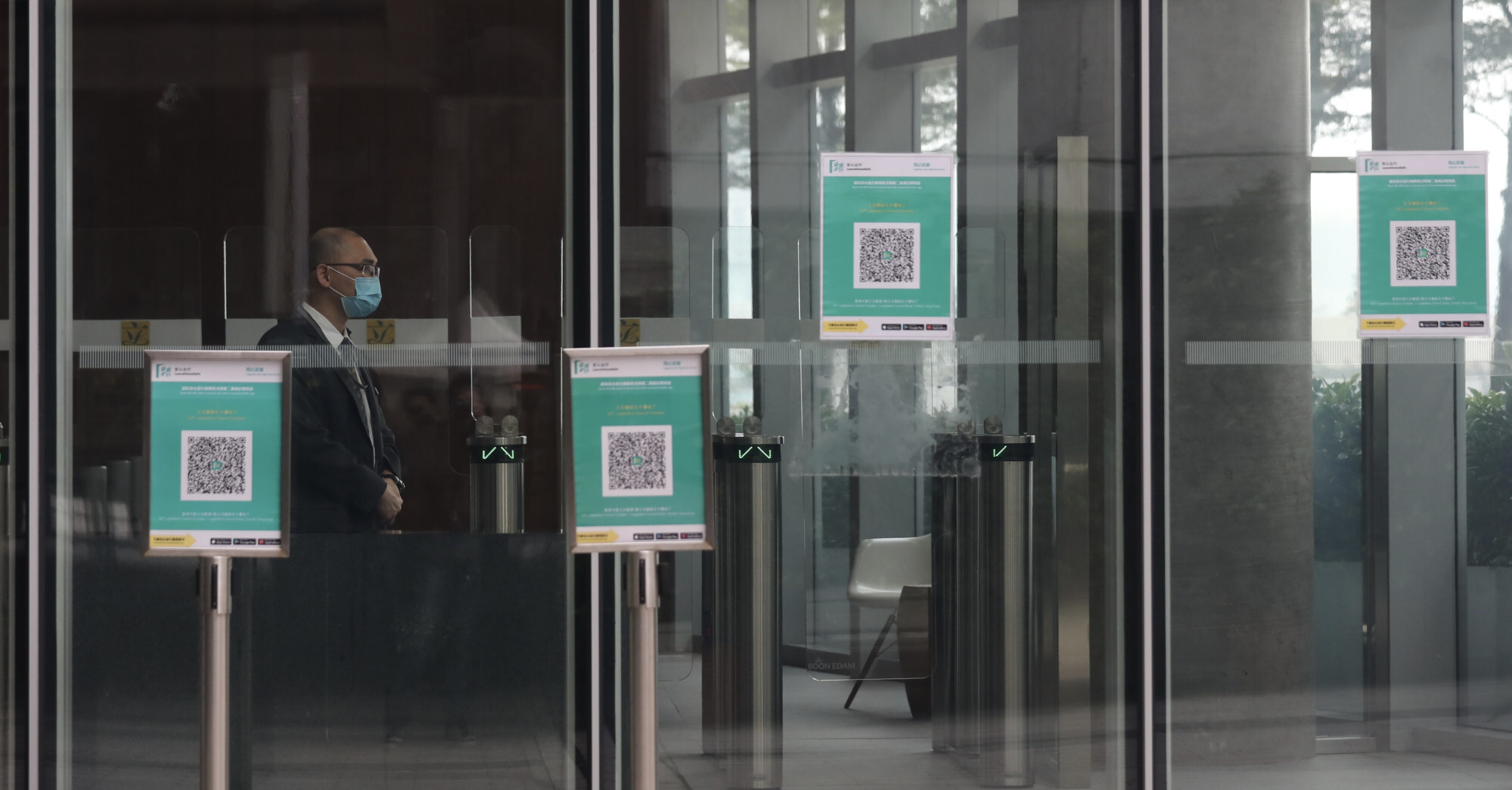
Explainer | Coronavirus: what to expect as Hong Kong’s vaccine pass scheme enters third phase
- Third phase, set to launch on May 31, will require most residents to show proof of three jabs upon entering government venues and 23 other types of premises
- Booster shots will not be required for residents who have recently recovered from Covid-19 or had already got their second or third jab before contracting virus
When the third phase of Hong Kong’s vaccine pass scheme comes into effect on May 31, most residents will be required to show proof of three coronavirus jabs upon entering government venues and 23 other types of premises.
The Post examines how the third phase of the scheme will work.
Hong Kong to push on with third stage of vaccine pass scheme, 328 cases logged
What are the new requirements?
With coronavirus cases remaining at a steady level, debate over the future of the scheme has increased in recent weeks. Several lawmakers have called for the postponement of the third phase due to economic considerations, while some health experts have urged that healthy non-elderly adults be exempted from the mandate.
Despite the debate, authorities had announced the vaccine pass will apply to 13 types of public healthcare premises providing non-emergency medical services from June 13, including specialist outpatient clinics, student health service facilities and women’s health centres.
It has so far not been applied to MTR trains or other public transport.
The requirements for the pass have been tightened in three stages, from a single jab initially, to two doses for adults and one for 12- to 17-year-olds by the end of April. In the third stage, all adults and 12-to-17-year-olds who were inoculated with their second dose more than six months ago will need to get a booster shot.
Residents will not be required to take a booster shot if they have recovered from a coronavirus infection less than six months ago or had already got their second or third jab before contracting the virus.
Those who have not yet completed the six-month waiting period before receiving their third dose are advised to make sure they have uploaded their latest vaccination record to their “Leave Home Safe” app.
According to the Information and Technology Bureau, the QR code for those who have received two jabs but have not yet completed the six-month waiting period for their third dose would remain blue in colour.
As of Saturday, about 3.8 million residents, or 55 per cent of the city’s eligible population, had received a booster shot.
Civil service chief Patrick Nip Tak-kuen said about 600,000 who were eligible for the third dose had not yet received it, meaning they would lose their vaccine pass by May 31.

How will it work in practice?
Residents have to present a paper vaccine certificate or upload an electronic one to the “Leave Home Safe” app or other government apps to create a QR code as proof of inoculation for entry.
Premises will be split into two types, those that require active or passive checking of vaccination records.
Venues deemed higher risk, such as restaurants and clubhouses, will require staff to actively check patrons’ inoculation or exemption records and customers must scan a QR code before entering. This will help contact-tracing efforts.
Shopping malls, supermarkets and wet markets are only subject to passive checking, which means providing vaccination records when asked by enforcement agents. This is similar to carrying a HKID card and being subject to spot checks by police.
Hong Kong health experts call for shorter grace period for third Covid jab
The “Leave Home Safe” app has also been upgraded for easy display of vaccination QR codes, and can support the uploading of medical exemption certificates.
Residents who have uploaded a vaccination record or medical exemption certificate by using a QR code will no longer need separate ones.
Machines installed at restaurants to scan QR codes will emit sound alerts as to whether a patron’s inoculation or exemption record is valid.
A blue QR code means the record has been uploaded, while the display will turn red if neither document is provided. Venues will also accept paper vaccination records.
Those who have received their second vaccine dose in the last six months will still get a blue code, as they are not yet due to take their booster shot for the vaccine pass scheme.
Who is exempt from the vaccine pass scheme?
Residents do not have to show their vaccination records if they are:
-
entering a venue to buy a takeaway or retrieve belongings
-
getting tested for Covid-19 or vaccinated
-
attending government or legal appointments
-
entering a healthcare centre to receive urgent medical treatment
-
passing through shopping malls to get to work or home
-
staying in hotels and guest houses
However, employees who work in venues subject to the requirement, such as shopping centres, will not be exempted.
How to register jabs administered abroad?
But residents looking to declare an overseas record of recovery from the virus will still need to register at post offices to fulfil their vaccine pass requirement.
How Hong Kong vaccine pass scheme works if you’ve just arrived in city
Who can get a medical exemption certificate?
Residents who are ineligible for a Covid-19 vaccine because of age or health reasons can be medically exempt. They need to provide relevant proof from a doctor and will be issued with a certificate, which will carry a QR code.
The Department of Health has issued guidelines for private doctors on the various medical reasons that qualify for an exemption. The certificate is valid for 90 to 180 days.
Dr Gabriel Choi Kin, president of the Hong Kong Medical Association, said exemptions for patients included those with severe heart diseases, anaemia, high blood pressure and diabetes which should be brought under control before vaccination.
“There are clear guidelines, but they are not exhaustive, which do not include all medical conditions, and the situation could change,” he said. “Doctors still have to make assessments based on the real situation.”
Choi said only a few medical exemption certificates were issued so far, mostly to elderly people with chronic conditions.

Will my data and privacy be protected?
According to the government, data on the “Leave Home Safe” app is not personally identifiable and details such as names and ID numbers are not visible. The vaccine information stored in the app is encrypted and will be automatically erased after 31 days.
Mobile phone operators will not be able to access the data. The health department will only request the operator to unlock the app through a one-time password and send the encrypted data to the department’s central database for contact tracing if there is a Covid-19 case at the venue.
The government has said the “Leave Home Safe” app does not have a tracking function as it only helps users record their visit history at different venues.
Hong Kong restaurants report smooth launch for vaccine pass pilot scheme
How will the vaccine pass be enforced? Is there a penalty if you use a false record?
Individuals will be prosecuted if they have passed off another person’s vaccination record as their own, as the offence will be similar to that of using a false document.
Penalties, if any, for the person whose record was misappropriated would depend on the circumstances of the case.
Additional reporting by Fiona Sun

